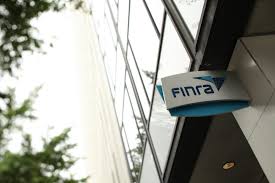Brokerdealer.com blog update courtesy of JDSupra Business Advisor.
The number of independent brokerdealers has continually decreased due to low interest rate. Many of these brokerdealers have joined up with already established financial firms and that’s where things get murky. Finra’s rule 1017 has caused a lot of confusion, this hopefully will help clear it up.
M&A transactions involving regulated broker-dealers often require Financial Industry Regulatory Authority (FINRA) approval under NASD Rule 1017. Such approval is required for any direct or indirect acquisition by a broker-dealer of another broker-dealer,1 change in control of a broker-dealer or “material change in business operations” of a broker-dealer.
Rule 1017 has gained prominence in light of recent consolidation within the independent broker-dealer industry, which experienced a decrease in broker-dealers registered as members of FINRA from 4,905 in 2008 to 4,105 as of October 2014.2 The consolidation has been driven by low interest rates (which have harmed independent broker-dealers by decreasing revenues from lending on margin) and difficult business conditions following the credit crisis. At the same time, the requirements of Dodd-Frank and other new regulations have imposed additional compliance costs on independent broker-dealers.
The timing and ultimate outcome of the Rule 1017 process are often critical factors in broker-dealer M&A transactions. Participants in broker-dealer M&A transactions may be unable, without FINRA assistance, to determine whether a transaction requires approval under Rule 1017. If Rule 1017 approval is required, uncertainties as to the likely timing for approval may further complicate the transaction.
Scope of Rule 1017 in the Context of M&A Transactions
A FINRA member broker-dealer that undergoes any of the changes described in Rule 1017 is required to file an application for FINRA’s approval under the rule. Some common examples of transactions requiring Rule 1017 approval include:
- acquisition or disposition of a controlling block of the equity securities of a broker-dealer, or of an equity interest that represents less than a controlling interest but 25 percent or more of the outstanding equity securities of the broker-dealer;
- acquisition or disposition of an asset management firm that includes a broker-dealer subsidiary or affiliate (such as a hedge fund management firm that uses a broker-dealer subsidiary to trade securities and/or raise capital for its funds and other products); and
- acquisition or disposition of assets that will materially change the business operations of the acquiring and/or disposing broker-dealer, such as may be encountered in the acquisition of a material amount of revenues attributable to sales of securities (e.g., mutual funds).
FINRA approval is required as a condition to closing each of the foregoing types of transactions and, in many cases, requires a longer period of time than any other closing condition — thus becoming the “critical path” to completing the deal.
For the entire article, click here